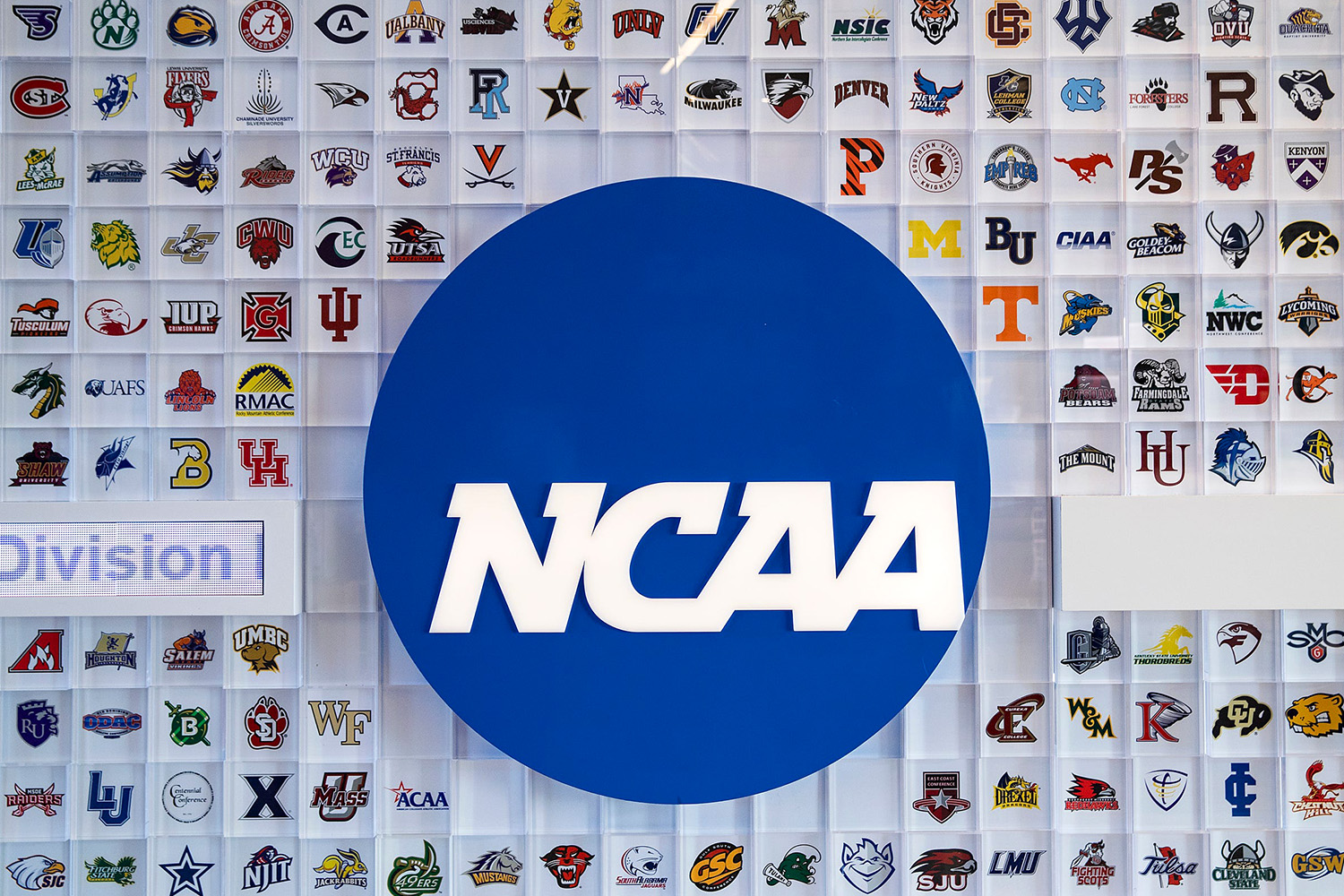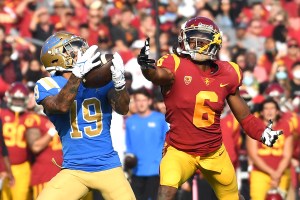Last year, the NCAA ratified a new constitution and created a committee to “modernize” college sports while addressing threats to amateurism and the unregulated NIL world.
But after a year of deliberating, the Division I Transformation Committee has punted. The NCAA’s new strategy is lobbying Congress to make rules for it.
“The goal … is to educate and motivate congress to work with us to create a clear, fair, and stable legal framework through which these important issues can be adequately addressed,” SEC Commissioner and committee co-chair Greg Sankey told reporters on Tuesday.
From routine spending on lobbyists to in-person meetings on Capitol Hill, the NCAA isn’t new to political posturing. But this year, the governing body will funnel more sources into it than ever.
- The Constitution and Transformation committees mulled how the NCAA could regulate NIL and whether athlete compensation could be altered. But ultimately, neither made solid decisions.
- Instead, the Transformation Committee designated a new group, called the “Board of Governors Subcommittee on Congressional Engagement,” as a liaison between the governing body and federal lawmakers.
- The group will “lead the NCAA’s strategy for engaging, motivating and collaborating with Congress over the coming year,” according to the Transformation Committee’s report.
- The NCAA has also hired Massachusetts Gov. Charlie Baker, a Republican, who has experience building bipartisan coalitions — a skill the NCAA said it valued.
Sankey said the strategy is motivated because “the NCAA lacks the legal authority to address some of these elements at present.”
But the reality is less that the NCAA can’t make decisions on its own, but more that outside entities could impose decisions the NCAA doesn’t want.
This year, two outside entities could kill amateurism. An NLRB case and a private lawsuit called Johnson v. NCAA could unilaterally designate certain athlete employees — giving them the rights to everything from collective bargaining power and worker’s compensation to wages.
While in much earlier stages, a lawsuit called House v. NCAA could redefine NIL, forcing conferences and the NCAA to split media rights revenue with players for the first time.
So while NCAA lawyers battle these issues behind the scenes, the governing body is clearly hoping Congress will first usurp these issues. But between the multitude of proposed NCAA legislation that has been largely ignored and the current disarray in Congress, it’s unclear whether that strategy will yield any results.








![[Subscription Customers Only] Jun 15, 2025; Seattle, Washington, USA; Botafogo owner John Textor inside the stadium before the match during a group stage match of the 2025 FIFA Club World Cup at Lumen Field.](https://frontofficesports.com/wp-content/uploads/2026/02/USATSI_26465842_168416386_lowres-scaled.jpg?quality=100&w=1024)
![[Subscription Customers Only] Jul 13, 2025; East Rutherford, New Jersey, USA; Chelsea FC midfielder Cole Palmer (10) celebrates winning the final of the 2025 FIFA Club World Cup at MetLife Stadium](https://frontofficesports.com/wp-content/uploads/2026/02/USATSI_26636703-scaled-e1770932227605.jpg?quality=100&w=1024)








